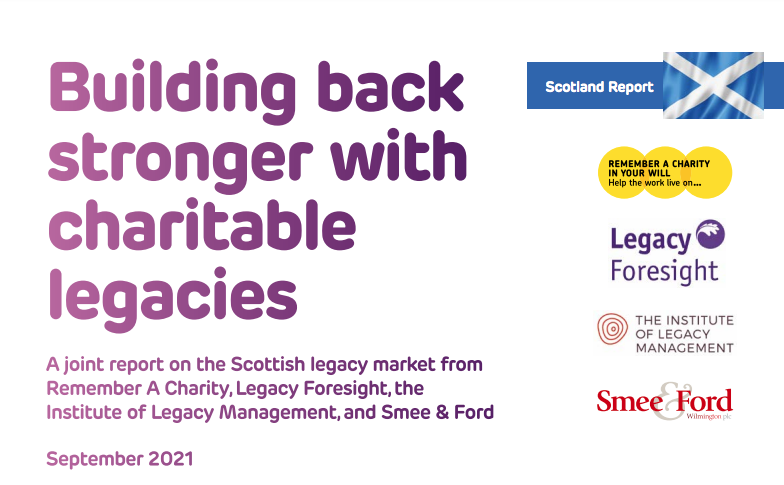8 positive stats for legacy fundraisers

Legacy Foresight has released its new Legacy Market Briefing 2021 following the latest benchmarking and analysis of legacy giving in the UK via its Legacy Monitor Consortium.
The report shares top-line findings and analysis for UK legacy giving now and in the years ahead, highlighting key trends and implications for fundraisers.
Key stats
1. Gifts in wills are worth £3bn a year to UK charities
Advertisement
Total UK legacy income has grown from £0.8bn in 1990 to £3bn in 2020 – an annual growth rate of 4.5% p.a.
After considering inflation, income is up by 2.7% p.a., which means that the real value of gifts in Wills to UK charities has doubled over 30 years.
2. The number of charitable bequests received has grown by 50% over the past 30 years
Over the past three decades the number of charitable bequests has risen from 75,000 in 1990 to 112,000 in 2020.
40% of all UK deaths result in a will at probate. And 16% of those wills at probate are now charitable, up from 13% in the late 1990s.
3. An average of 3.3 gifts per will
On average, there are 3.3 charitable gifts per will. 38% of charitable wills contain just one bequest; 28% include four or more.
4. Average residual bequest value was just over £50,000 in 2020
In 2020 the average residual bequest value (including ‘other’ bequests) across the sector was £50,900, while the average pecuniary bequest was worth £3,400
5. Younger, smaller charities are gaining ground
Medium (£1-10m legacy income) and large (£10-25m legacy income) legacy charities report the fastest 5-year growth rates of 6.3% p.a. and 4.7% p.a., respectively.
More specialised and often local cause areas are gaining ground. Over the past ten years, the fastest-growing sub-sectors have been air ambulances (14% p.a.) and wildlife trusts (13% p.a.), followed by arts and education charities, NHS hospitals, and mental health charities, all ranging between 7% and 8% p.a.
6. Legacy notifications will reach record numbers in 2021 and 2022
Data from HMCTS suggest that grants of probate were 30% higher in the first half of 2021 than the same period in 2020. And in turn, Legacy Monitor Consortium notifications in the three months to March 2021 were the highest Legacy Foresight have seen in the 14-year history of Legacy Monitor, up 18% on the same time last year. This suggests that some of the problems around probate applications may be starting to unwind.
(However, applications for probate started to fall away again over the summer, and anecdotal evidence suggests that there are still ongoing delays throughout the process, so the challenges for the sector will likely continue well into 2022.)
7. By 2030, legacy incomes will reach £5bn
Over the next five years 2021 – 2025 UK legacy income will total £19.6bn, climbing to £23bn in the period 2026 – 2030. By 2030 UK charities will receive £5bn p.a. in legacy income from 146,000 charitable bequests.
8. Over the next three decades, real incomes will double
Further ahead, Legacy Foresight’s market projections remain positive. Due to the size, wealth, and lifestyles of the baby boomer generation, it predicts that incomes will again double in real terms by 2050.
Legacy Foresight will continue to monitor developments relating to the coronavirus pandemic, the UK economy and estate administration processes over the coming months and will provide updates on the potential impact on the UK legacy market.
Jon Franklin, economist at Legacy Foresight commented:
“After a difficult couple of years, the outlook for legacy incomes is promising. However, the strength of the recovery is highly dependent on the pace at which delays in the estate administration process can be unwound.”
The full briefing can be found on the Legacy Foresight site, and it will be discussing the findings in greater detail at a webinar on 11 Nov at 10am GMT.




